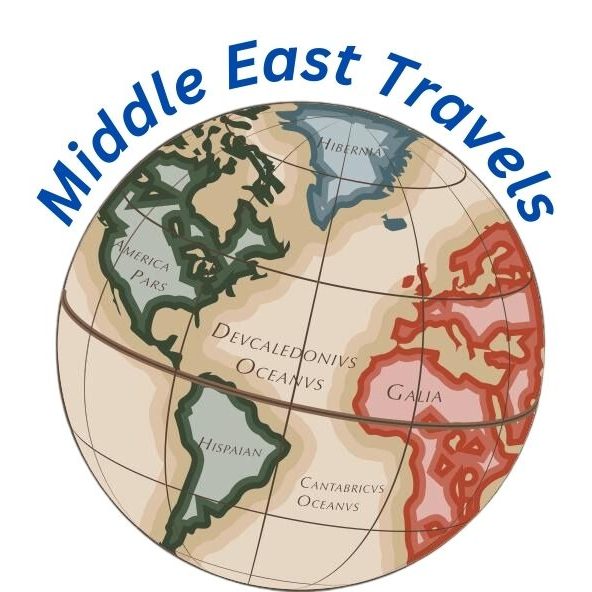Visiting Egypt is a captivating experience, offering a blend of ancient history, vibrant culture, and stunning landscapes. To make the most of your trip, consider the following travel tips:
1. Best Time to Visit
Optimal Seasons: The most comfortable times to visit Egypt are spring (March to May) and autumn (September to November) months. The weather is mild, making it ideal for exploring outdoor sites.
Avoiding Extremes: Summers (June to August) can be scorching, especially in southern regions like Luxor and Aswan. Winters (December to February) are cooler, particularly in the evenings.
2. Visa and Entry Requirements
Visa Obtaining: Many travelers need a visa to enter Egypt. Visas can often be obtained online through the Egypt e-Visa portal or upon arrival at major airports.
Passport Validity: Ensure your passport is valid for at least six months before departure.
Multiple Entries: If you plan to leave and re-enter Egypt, consider applying for a multiple-entry visa.
3. Health and Safety
Vaccinations: Check with your local health authorities for recommended vaccinations. Common ones include Hepatitis A and Typhoid.
Water Safety: Drink bottled or purified water to avoid waterborne illnesses. Avoid ice in drinks unless you’re certain it’s from purified water.
Travel Insurance: Comprehensive travel insurance covering health, accidents, and theft is highly recommended.
4. Cultural Etiquette and Dress Code
Respect Local Customs: Egypt is predominantly Muslim, so modest dress is appreciated, especially in religious sites. Women may consider wearing scarves when visiting mosques.
Greetings: A friendly handshake is common. It’s polite to use your right hand when giving or receiving items.
Public Behavior: Public displays of affection are generally frowned upon. Be mindful of local sensitivities.
5. Language
Arabic Proficiency: Modern Standard Arabic is the official language. However, Egyptian Arabic is widely spoken.
English Usage: In tourist areas, English is commonly understood. Learning a few basic Arabic phrases can enhance your experience and interactions.
6. Currency and Payments
Local Currency: The Egyptian Pound (EGP) is the official currency.
Cash vs. Cards: While credit and debit cards are accepted in many hotels and restaurants, carrying some cash is advisable for smaller establishments and markets.
ATMs: Available in major cities and tourist areas. Ensure your bank is informed about your travel to avoid card issues.
7. Transportation
Domestic Flights: Efficient for covering long distances, such as between Cairo and Aswan.
Trains: A comfortable option for traveling between major cities like Cairo, Luxor, and Aswan. The overnight sleeper trains are popular.
Buses and Coaches: Affordable but can be crowded. Companies like GoBus offer reliable services.
Taxis and Ride-Sharing: Use reputable taxi services or ride-sharing apps like Uber and Careem in cities for safety and convenience.
Public Transport: Cairo has a metro system, but it can be crowded during peak hours.
8. Accommodation
Variety of Options: From luxury resorts along the Red Sea and Nile River to budget hostels and guesthouses in cities.
Booking in Advance: Especially during peak seasons, it’s advisable to book accommodations ahead of time.
Location Considerations: Choose accommodations based on your itinerary. Staying in central locations can save time on transportation.
9. Key Attractions
Cairo: Explore the Pyramids of Giza, the Egyptian Museum, and the bustling Khan El Khalili bazaar.
Luxor and Aswan: Discover the Valley of the Kings, Karnak Temple, and the stunning temples along the Nile.
Red Sea Resorts: Relax in Sharm El Sheikh or Hurghada, known for its beautiful beaches and diving spots.
Alexandria: Visit the historic Bibliotheca Alexandrina and the Citadel of Qaitbay.
10. Food and Water Safety
Local Cuisine: Enjoy traditional dishes like koshari, falafel, and shawarma. Street food can be tempting but choose vendors that maintain good hygiene.
Water Consumption: Stick to bottled water. Be cautious with ice and raw vegetables unless you’re sure they’ve been washed with safe water.
11. Security Considerations
Stay Informed: Check travel advisories from your government before and during your trip.
Stay Vigilant: Petty theft can occur in crowded areas. Keep your belongings secure and be aware of your surroundings.
Local Laws: Familiarize yourself with local laws and regulations to avoid inadvertent offenses.
12. Travel Insurance
Coverage: Ensure your policy covers medical expenses, trip cancellations, lost luggage, and any activities you plan to undertake, such as diving or desert excursions.
Documentation: Carry a copy of your insurance policy and emergency contact numbers.
13. Other Tips
Electricity: Egypt uses 220V, 50Hz electricity with Type C and Type F plugs. Bringing a universal adapter is recommended.
Time Zone: Egypt operates on Eastern European Time (UTC+2). Adjust your devices accordingly.
Tipping (Baksheesh): Tipping is customary for many services, including guides, drivers, and hotel staff. Carry small changes for this purpose.
Internet Access: Wi-Fi is widely available in hotels, cafes, and restaurants. Consider getting a local SIM card for better connectivity during your travels.
Final Thoughts
Egypt offers a rich tapestry of experiences, from exploring ancient monuments to enjoying vibrant city life and serene natural landscapes. By preparing in advance and respecting local customs, you can ensure a memorable and enjoyable visit.
Safe travels!


Comment (0)